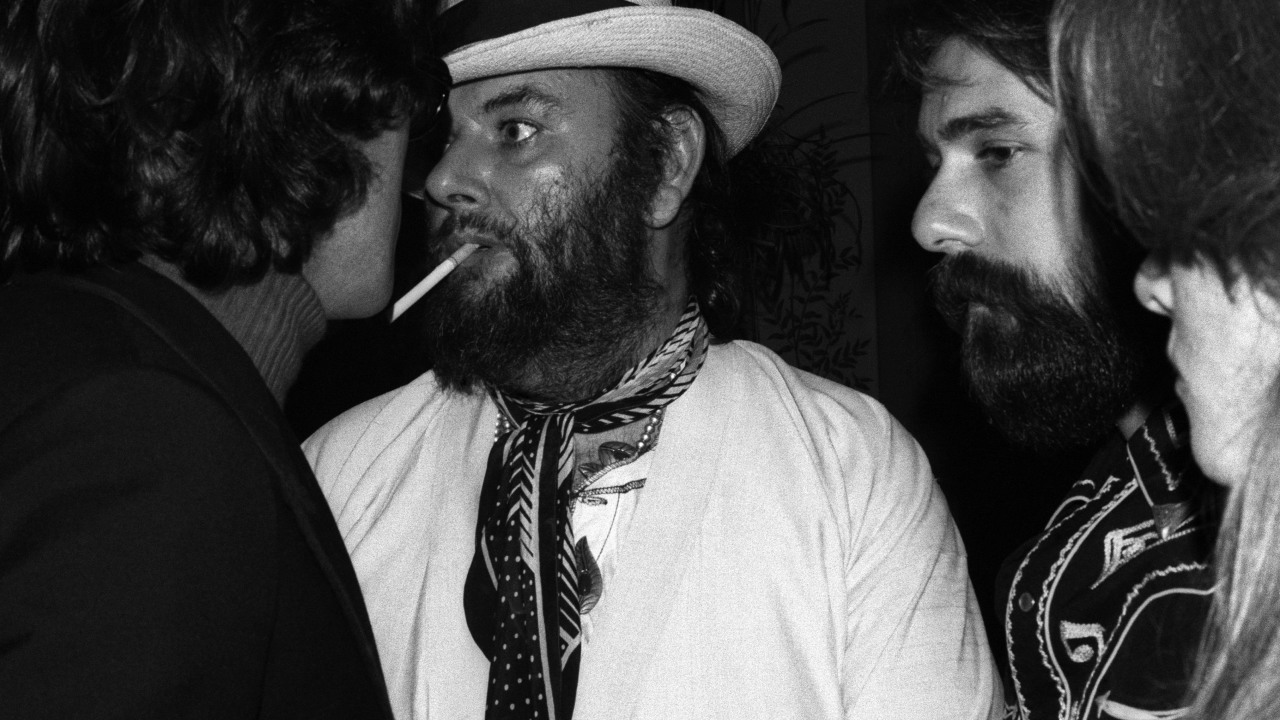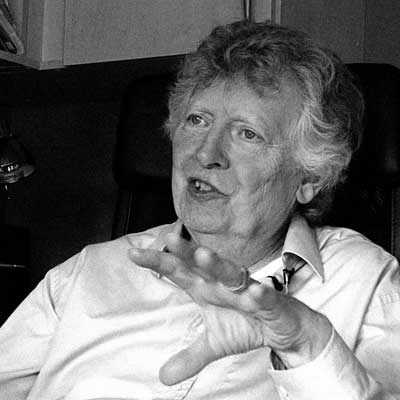“When Peter Grant was laying down the law to people,” said former Led Zeppelin press agent Bill Harry, “they would be visibly shaking. People were terrified of him. He had this immense power to project strength. But I found he was like a cuddly bear.”
Those two sides of Peter Grant, the extraordinary man who so successfully guided Led Zeppelin’s fortune, seemed inexplicably contradictory. Yet those facets are crucial to the story of the world’s greatest rock band, their subsequent decline, and Grant’s own rise and fall. How was it that such a commanding and influential figure as their manager came to lose his grip on fame and success? The answer lies in those elements of tragedy that have inflamed the passions of playwrights from Ancient Greeks to Shakespeare.
Grant’s death, aged 60, in 1995, came some 15 years after the demise of Led Zeppelin in 1980. But the seeds of his decline were sown during the hectic era when Zeppelin ruled the rock world – and Grant was making those rules.
Peter Grant was a colossus who managed his beloved band with strength and courage. Bill Harry was amazed by the impact ‘the cuddly bear’ had on those around him. He saw at first-hand how Grant inspired fear and respect. And yet, as many discovered, along with that ferocious aggression Grant also possessed a twinkling good humour. His charm often disarmed people more successfully than his anger did.
Peter Grant and Led Zeppelin was a marriage made in Heaven. Of course, the band didn’t rely on Grant’s – or anyone else’s – shouting and threats to become a success; it was their inspiring music and dynamic stage performances that elevated Led Zeppelin to superstar, almost god-like status. But Grant matched their musical commitment with his own kind of energy.
A former wrestler and ex-National Serviceman, he was no shrinking violet. He tackled the moguls of the music industry (who in those days were very much used to calling the tune, and everyone else, artists included, had to sing to it) head-on. Usually he won. He was the hands-on manager who always travelled with the band, made sure costs were kept down, and that promoters paid up.
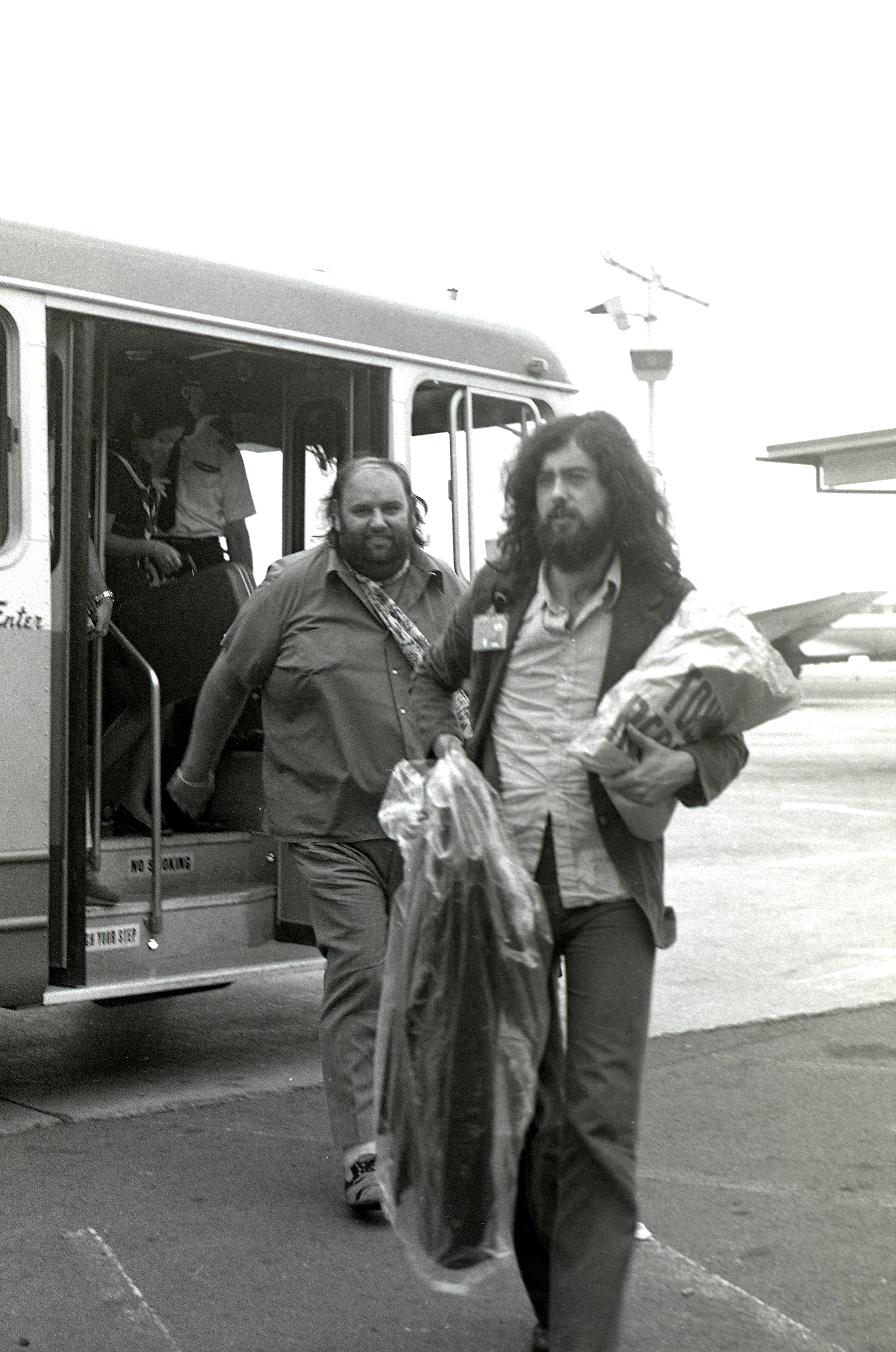
It was life experience that equipped Grant for the task he handled so masterfully. Born on April 5, 1935, he was raised in Battersea, South London, by his mother. During the Second World War he was an evacuee and endured a disrupted schooling. In the post-war years the big-built cockney lad held down a number of odd jobs. An attraction to showbusiness led him to become a theatre stagehand, and he landed walk-on roles in several movies during the 50s.
He also worked as a doorman at Soho’s famed 2Is coffee bar where the careers of a number of beat groups and singers began. It was also where Grant met his future business partner, record producer Mickie Most, who once described his friend as “a dreamer who hustled”. Wrestler Paul Lincoln (aka Doctor Death), who ran the 2Is, encouraged his imposing bouncer to try a few bouts. Grant was billed as Count Massimo and crashed around the ring, butting people with his bulbous stomach.
His next job was as tour manager for Chuck Berry, Gene Vincent and Little Richard. Grant had done National Service at the age of 18. A former corporal, he knew how to deal with troublemakers.
After working for promoter Don Arden (who would later manage Black Sabbath, among others) on tours with Bo Diddley, The Animals and the Everly Brothers, Grant moved into management. It was during a US tour managing The Yardbirds that he formed a close friendship with Jimmy Page. When the group broke up in 1968 Grant helped Jimmy form the New Yardbirds – who soon afterwards changed their name to Led Zeppelin.
An early sign of Grant’s skills as shrewd and persuasive operator, he signed Led Zeppelin to Atlantic Records for a lucrative five-year contract, insisting on artistic control and a huge advance – astonishingly, without Atlantic even having seen the band play. His dealings behind the scenes soon became legendary. Anybody who got in the way suffered ‘screamer’ phone calls, desks being thumped so hard they broke, and tirades of abuse. Overweight, Grant suffered from back pain that did not help his temper.
But there was a lot to smile about. Zeppelin’s album sales soared and tours sold out. Eventually everything Grant had worked for had come to fruition. With him pulling the strings and the band pulling the crowds, Led Zeppelin become the biggest rock band on the planet. The lad from Battersea was able to buy Horselunges Manor near Eastbourne, in Sussex, a £100,000 mansion complete with moat, where he lived with his wife Gloria, a petite former dancer, and their children Helen and Warren.
Feared, respected and loved in equal measure, Peter Grant seemed like a man of destiny. But then, at the height of Zeppelin’s success, a process of collapse and decay began. Events began to pile up that shook even Grant’s usually solid confidence. First, in August 1975, just months after Zeppelin’s Earl’s Court concerts, Robert Plant and his family were injured in a holiday car crash on the Greek island of Rhodes. As a result Grant had to scrap a planned world tour, and secretly told colleagues: “This could be the end of Led Zeppelin.”
With his band out of action and him and them holed up in a rented house in America, Grant was prey to temptations he normally avoided. He began experimenting with the drugs that were floating around the buoyant rock scene. Under stress and often in pain, his mood swings became ever more unpredictable.
- Fly On The Wall: Beck, Page, Moon And The Birth Of Led Zeppelin
- The Top 10 Best Robert Plant Solo Songs
- High Flyers - Them Crooked Vultures: 'The Best F**king Band I’ve Ever Been In!'
- Jimmy Page: 'People Might Forget What We Did, I Didn’t. I’m The One Who Knew'
Worried about death threats to the band, he began backing up his own intimidating manner by hiring security guards with guns. The good-time party atmosphere was replaced by something more sinister. And while coping with security and financial problems, he neglected his family affairs. He became more aggressive with people he didn’t trust. As one record executive said: “Peter’s philosophy was simple: you were either a friend or you were a foe.”
The great wealth he had amassed through Zeppelin’s huge success proved a double-edged sword for Grant. He filled his Elizabethan manor house with tapestries and antiques, but his wife found herself living in isolation while he was off gallivanting around the world with a rock’n’roll circus. Zeppelin always came first, which put a strain on the Grants’ marriage. Gloria was especially unhappy at the time her husband was living in a rented house in Long Island, reputedly to avoid having to pay crippling UK taxes.
He recalled later: “I had some problems in 1975, and my wife was fed up with it all and walked out on me. It was not a good scene. There were drug problems with one or two people, including myself. It was really hard for me, because I had to leave the kids and my divorce was starting.”
This personal breakdown undermined Grant’s confidence and sapped his spirits. He moved out of the manor house and went to live in Los Angeles, where, down and depressed, he turned to cocaine and eventually found himself taken over by the drug.
By 1978 Led Zeppelin had recovered sufficiently to carry on performing and recording. But Plant wasn’t in the mood to sing Stairway To Heaven again.
Meanwhile, Grant returned to Horselunges, where he tried to run the band’s Swan Song label. His health deteriorated, and he had a mild heart attack. As he suffered from diabetes, he was ordered not to drink alcohol or take sugar. It was a dark and gloomy time. And Richard Cole knew his boss was now dabbling in harder drugs.
Plans were made for the group to play two special shows at Knebworth in August 1979. It would be Zeppelin’s first UK appearance since 1975, and expectations were high. Grant was back on form and took his usual ‘precautions’: his own staff counted and took a million pounds in cash – to be stashed in the boots of waiting cars – from the promoter. He even hired a helicopter to photograph the size of the crowds, in order to check the attendance figures. The Knebworth shows proved to be Grant’s last stand.
The plan was to organise a full European tour in 1980, before attempting a return to America. Robert Plant wasn’t keen on the idea, but eventually he agreed to a four-week trip. Neither Plant nor Bonham really wanted to go back to the States either.
Rehearsals for the tour began on September 24, 1980. On that first day, Bonham began drinking vodka to ward off his fears. The following day he was found dead. It was a terrible blow. Obviously, plans for an American tour were abandoned. By December the group had officially broken up.
Peter Grant was devastated by the death of Bonham, who was by now far more of a very close friend than he was the drummer in the band he managed. He entered his ‘dark period’. He became a paranoid recluse, never leaving the safety of his home. It took many years for him to recover.
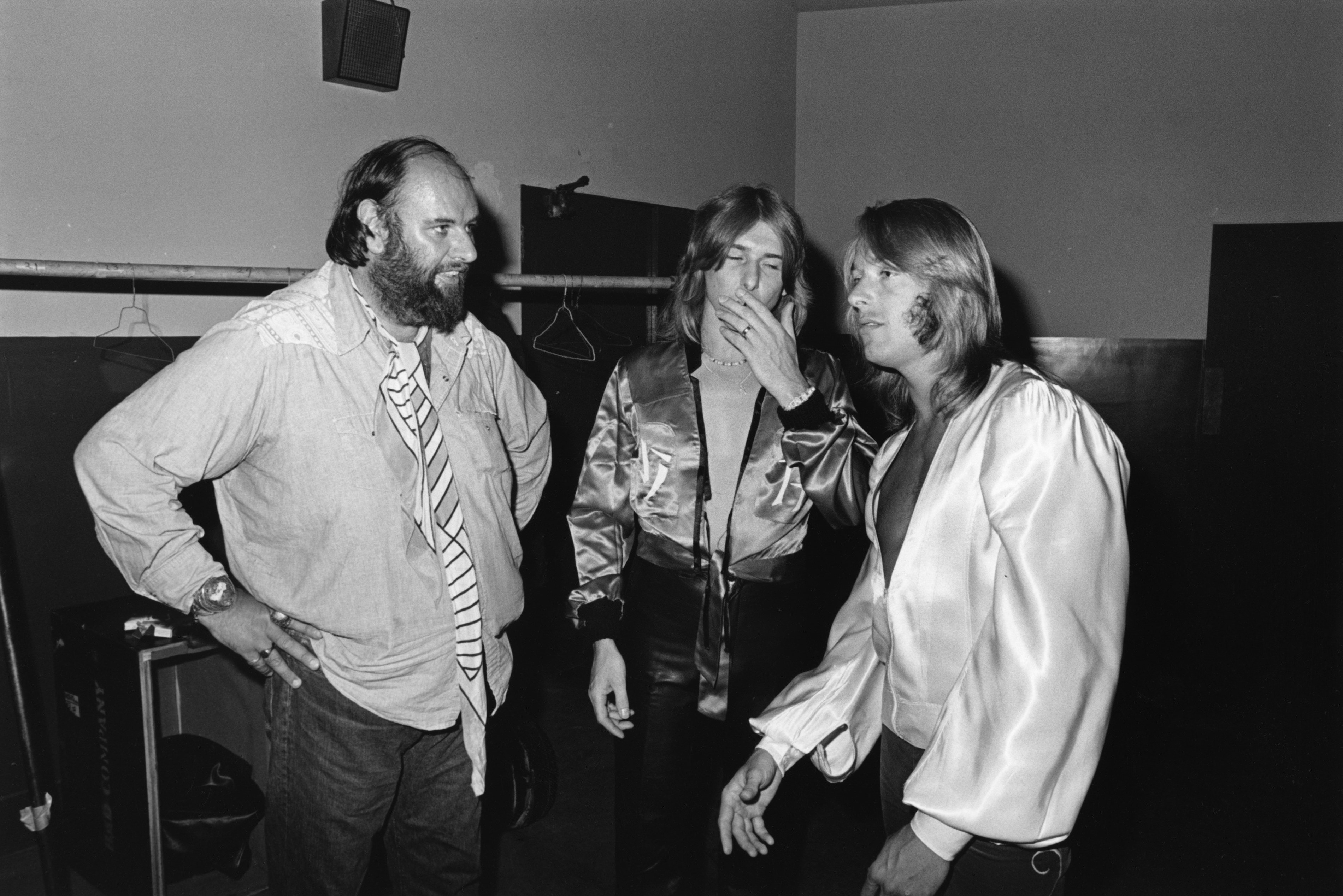
A friend recalls: “The pattern of his life changed. Peter would call his wife every day. But once the phone calls didn’t come, Gloria sussed something was going on. Then he kind of fell apart and never really recovered. He became a different person. He was one of the richest and most powerful men in the music business. Suddenly his wife ran off. It was a terrible blow to his ego.”
By now Grant’s appearance made him look more menacing than ever. He was like a long-haired pirate, in baggy jeans, satin shirts, jewellery and rings.
When even his relationship with Led Zeppelin became strained, his close friend Mickie Most noticed the changes: “When Zeppelin started, he would kill for those guys. Their relationship was unique, and so tight it eventually became claustrophobic. By the fourth album everybody wanted some air and freedom. Their relationship became unhealthy, and after all his hard work Peter had a personality change. The split-up with Gloria was like the final nail in the coffin. He was morally broken. He wasn’t the Peter Grant we all knew and loved. He became secretive, and you felt uncomfortable around him.”
Another friend said: “Peter never got over his divorce, and never recovered from the fact that something he’d held so dear was taken away. It was a great personal tragedy. Although he eventually won custody of the children, as far as he was concerned he had failed. And he was not a man used to failure.”
After the divorce, Grant returned to his manor house. But life with Zeppelin deteriorated further. The shit hit the fan during what should have been another successful American tour. After being out of action since Robert Plant’s accident, the band were ready to rock. But so was the boat.
Led Zeppelin’s eleventh US tour began in April 1977. Along the way there was a riot at one of the gigs, hotel wrecking sprees, and the disappearance of cash from the funds. Zeppelin played sold-out shows at Madison Square Garden and the Los Angeles Forum.
The tour reached its nadir at Oakland County Coliseum near San Francisco on July 23. After Grant’s 11-year-old son, Warren, was involved in an altercation with one of promoter Bill Graham’s security men, the guard was promptly beaten up by Grant and his security man John Bindon. As a result, Grant and Bindon, together with John Bonham and tour manager Richard Cole, were all arrested. A civil suit was filed seeking $2 million in damages against the Zeppelin entourage.
There had been other incidents during a bad-tempered afternoon. Graham, one of America’s most respected concert promoters, vowed he would never book Led Zeppelin again. Grant later described the Oakland incident as another “nightmare” and expressed regret. It was all because he had lost control.
The band headed to New Orleans, only to hear more bad news: a message left at their hotel said that Plant’s five-year-old son Karac had been taken ill at home in England and taken to hospital.
Despite treatment, Karac died later from a virus infection. Plant quit the tour and flew home.
The show at Oakland proved to be Led Zeppelin’s last appearance in America.
The rest of the band and crew returned to England, the four involved in the Oakland incident having been given bail; later they were given suspended prison sentences and fines, and the civil case was dropped.
Bill Graham later wrote bitterly about the events at Oakland in his biography: ‘I didn’t like these people [Grant, Bindon, Bonham and Cole]. I didn’t like their influence on society, or their power. But back then Zeppelin were kings of the world.’ When Grant read Graham’s judgement on him, he wept.
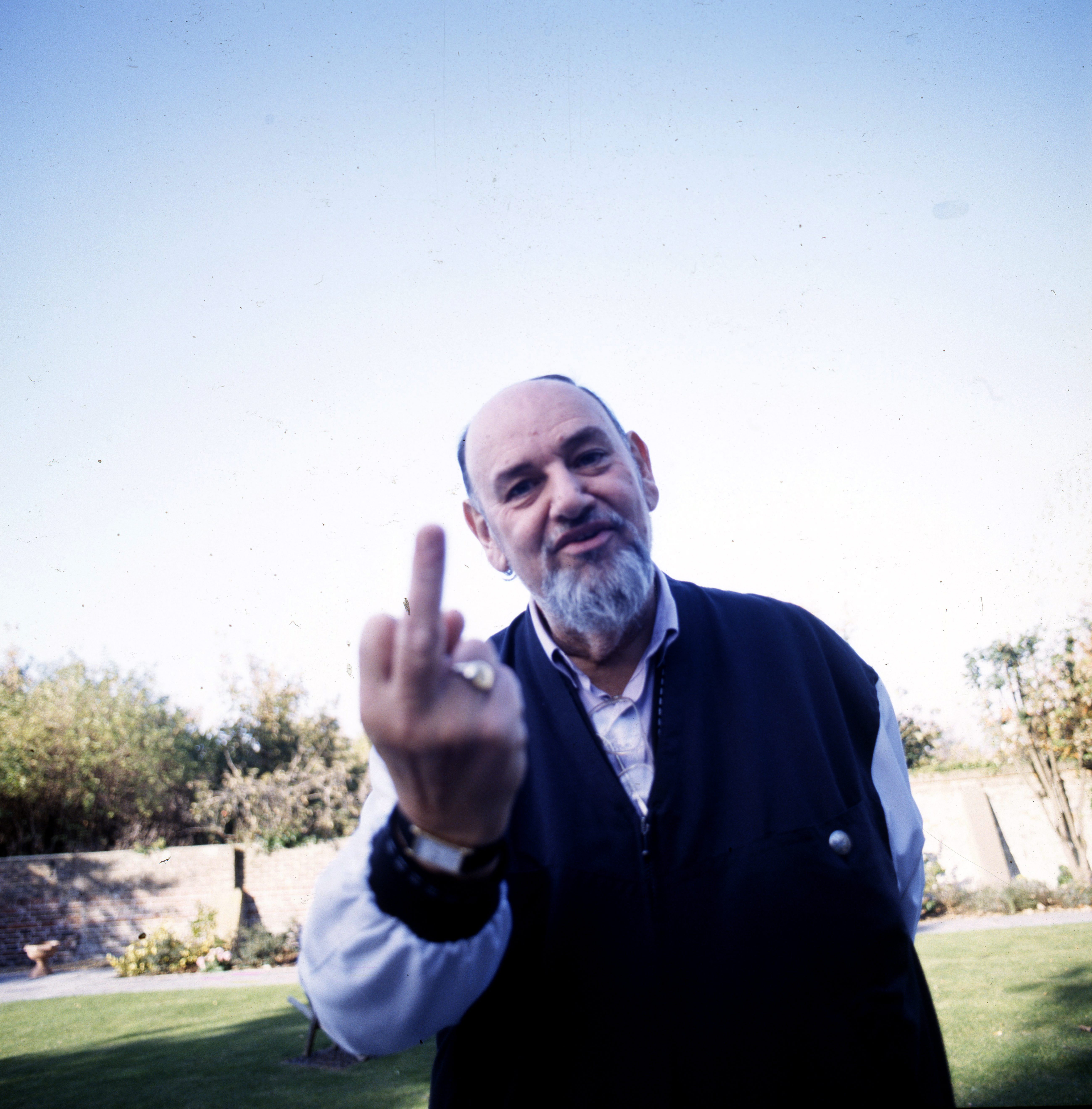
Eventually he emerged from the dark and back into the light, but he found himself confronted by a very different world. His children Helen and Warren were growing up and embarking on their own lives. Robert Plant had begun a solo career – and with new management. Jimmy Page didn’t even want to play guitar again (the next time he would do so publicly was when he formed The Firm, with ex-Free and Bad Company singer Paul Rodgers, in 1985).
Grant had become a hermit, protected by ‘minders’. His old empire, including the Swan Song label, fell apart.
He eventually got over grieving for John Bonham, and by 1990 decided to kick his habit. He threw the drugs down a toilet, locked himself in a bedroom with flagons of orange juice and threw the key out of the window. He stayed in the room for four days. Once he’d done ‘cold turkey’ he set about dieting. He lost so much weight that people didn’t recognise him. A slimline Grant emerged to receive the acclaim of a music industry that had once feared him and now revered him.
He sold the Horselunges mansion and moved to a flat in Eastbourne, where he became a local dignitary; he was even asked to become a magistrate. He avoided the music business, preferring to collect vintage cars.
In September 1995 Peter Grant was inducted into the Roll Of Honour at the International Managers’ Forum in London. In his acceptance speech he said that he had been very lucky to work with great talent, which had allowed him to be successful.
Two months later, on November 21, 1995, Peter Grant died from a heart attack sustained while travelling home in his car with his son Warren by his side. His funeral was held on a dark, cold morning on December 4, with a Siberian wind blowing over St Peter and St Paul’s Church in Hellingly, the East Sussex village where he used to live. Mourners including Jimmy Page packed the church. Fulsome tributes were read during the service. There was no Led Zeppelin music played; instead a recording of Vera Lynn singing the sharply emotive WWII anthem We’ll Meet Again echoed through the ancient church – perhaps a warning from beyond the grave not to mess with his memory.
The Led Zeppelin Quiz: how well do you know Led Zeppelin IV?
